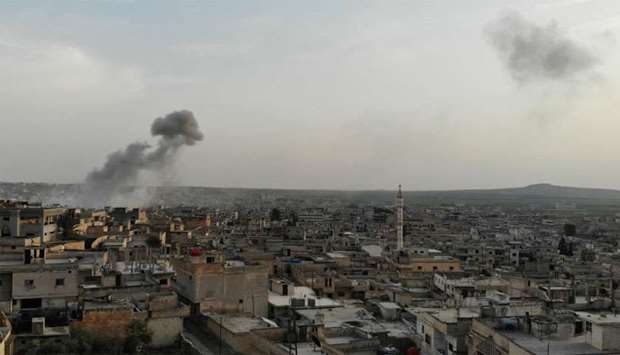War monitors said on Tuesday there had been a marked escalation in air strikes in rebel-held northwestern Syria, the last major bastion of opponents of President Bashar al-Assad, prompting thousands of civilians to flee the town of Khan Sheikhoun.
Rami Abdulrahman, the director of the British-based Syrian Observatory for Human Rights, said government forces had intensified artillery shelling and air strikes that have been ramping up over the past 10 days.
‘The bombing is focused mainly on towns along the Damascus-Aleppo international road,’ he said. ‘Khan Sheikhoun has turned into a ghost town.’
According to a senior data analyst at Hala Systems, which operates an early warning system for aerial bombardment called Sentry, 13 strikes had been observed in Idlib and northern Hama on Tuesday.
‘This is the third straight day in which a significant increase in air strikes has been observed. The pace of attacks seems high - and certainly unusual compared to the last few months,’ the analyst, who declined to be named, told Reuters.
Syrian state media said insurgents had fired rockets at several towns in the northern part of Hama province, killing one civilian and wounding seven others in what it said was a violation of a de-escalation agreement.
Russia, one of the Syrian government's staunchest allies, and Turkey brokered a deal in September to create a demilitarised zone in the northwest Idlib region that would be free of all heavy weapons and militant fighters.
The agreement helped avert an assault on the region by government forces. However, Moscow has complained about escalating violence in Idlib and said that militants who used to belong to the Nusra Front group are in control of large swathes of territory.
Syria's conflict began in 2011 after Assad's security forces used force to crush mass demonstrations against his rule. Hundreds of thousands of people have been killed and millions displaced in the conflict, which has drawn in world powers.

